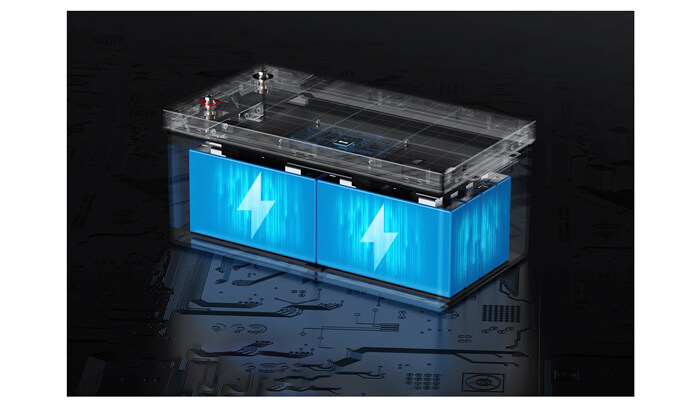In the world of automotive sound systems, power is everything. The louder and clearer the sound, the more power is needed to drive amplifiers, subwoofers, and speakers. Traditional car batteries can handle basic functions, but when it comes to high-performance audio setups, a specialized power source is required. This is where the car audio lithium battery comes into play.
Car audio lithium batteries have revolutionized how audiophiles and competitors power their systems. In this article, we'll explore what they are, how they differ from traditional batteries, their benefits, drawbacks, and why they're becoming the gold standard for serious car audio enthusiasts.

Understanding Car Audio Lithium Batteries
A car audio lithium battery is a type of rechargeable battery specifically designed to power high-demand audio systems in vehicles. Unlike the typical lead-acid battery that comes standard in most cars, lithium batteries use lithium iron phosphate (LiFePO₄) or similar lithium-based chemistries to provide a stable, long-lasting, and lightweight energy source.
Primary Function
Their main function is to supplement or replace the vehicle’s primary battery by providing a dedicated and efficient power source to support high-wattage audio systems. This ensures that the sound system runs without interruption, voltage drops, or damage to electrical components.
Why Not Just Use a Standard Car Battery?
Traditional car batteries (usually lead-acid or AGM—Absorbent Glass Mat) are great for starting engines and powering factory electronics, but they struggle under the demands of high-powered audio setups. When an audio system draws more power than a traditional battery can supply, several issues can occur:
-
Voltage drops, leading to distortion or amplifier clipping.
-
Dimming headlights due to power drain.
-
Battery wear and tear, as frequent deep discharges shorten lifespan.
-
Reduced sound quality due to unstable power supply.
In contrast, lithium batteries offer a higher energy density, faster charging, and longer lifecycle—making them ideal for modern audio systems that require consistent and reliable performance.
Key Features of Car Audio Lithium Batteries
1. High Discharge Rates
Lithium batteries can discharge large amounts of current quickly without damaging the cells. This is critical for high-power amplifiers that demand rapid bursts of energy.
2. Fast Charging
Lithium cells accept a charge much more efficiently than lead-acid batteries. This allows them to recharge quicker between uses, especially beneficial for vehicles used in competitions or shows.
3. Lightweight Construction
Lithium batteries are significantly lighter than their lead-acid counterparts—sometimes up to 70% less. This reduction in weight improves vehicle performance and makes installation more manageable.
4. Deep Cycling Capability
They can be deeply discharged and recharged many times without significant degradation, unlike lead-acid batteries which degrade quickly under deep cycle conditions.
5. Longer Lifespan
On average, a lithium battery can last between 5–10 years depending on use and care, outlasting typical AGM or lead-acid batteries which last around 3–5 years.
Benefits of Using Lithium Batteries for Car Audio
1. Stable Voltage Output
Lithium batteries maintain a consistent voltage level throughout their discharge cycle, ensuring that your audio equipment gets a steady supply of power without dips that can affect sound quality.
2. Space-Saving
With more power packed into a smaller space, lithium batteries help free up valuable real estate in your trunk or under the hood for other components.
3. Eco-Friendly
LiFePO₄ batteries are non-toxic, have a longer life cycle, and are more environmentally friendly compared to lead-acid batteries, which contain hazardous materials.
4. Enhanced Audio Performance
Better power management translates to cleaner, more powerful audio. Subwoofers hit harder, highs are clearer, and midrange tones are more detailed—all due to consistent power delivery.
5. Reduced Maintenance
No need to add water, check fluid levels, or worry about acid spills. Lithium batteries are sealed and maintenance-free.
Common Applications
-
Car audio competitions (dB Drag Racing, IASCA, MECA)
-
Show cars with high-end multimedia systems
-
Custom-built vehicles with advanced sound stages
-
Daily drivers with upgraded aftermarket systems

Lithium vs. AGM: A Quick Comparison
|
Feature
|
Lithium Battery
|
AGM Battery
|
|
Weight
|
Light
|
Heavy
|
|
Charge Time
|
Fast
|
Slow
|
|
Discharge Rate
|
High
|
Moderate
|
|
Lifespan
|
5–10 years
|
3–5 years
|
|
Voltage Stability
|
Very stable
|
Moderate
|
|
Maintenance
|
Maintenance-free
|
Maintenance-free
|
|
Cost
|
Higher upfront cost
|
Lower upfront cost
|
|
Environmental Impact
|
Eco-friendly
|
Contains hazardous materials
|
Considerations Before Switching
1. Higher Initial Cost
Lithium batteries can cost two to three times more than traditional batteries, but this cost is offset by performance and longevity.
2. Charging Requirements
They require a specific charging voltage and current. Using the wrong alternator or charger can damage the battery. A lithium-compatible charger or battery management system (BMS) is often required.
3. Heat Sensitivity
While modern LiFePO₄ cells are more stable, lithium batteries still require protection from extreme temperatures.
4. BMS Integration
Most high-quality lithium batteries include a Battery Management System to prevent overcharging, over-discharging, or overheating. Always ensure the battery has a BMS built-in or add one externally.
Installation Tips
-
Use quality cables and terminals to handle high current flow.
-
Install fuses or circuit breakers for safety.
-
Mount securely to avoid movement or vibration damage.
-
Keep away from heat sources such as exhaust or engine components.
-
Pair with the right alternator and charger that matches lithium specs.
Final Thoughts
Car audio lithium batteries are a game-changer for anyone serious about in-car audio performance. They offer a level of efficiency, power delivery, and durability that traditional batteries simply can’t match. Though the upfront investment is higher, the long-term gains in performance, reliability, and lifespan make it a worthwhile upgrade.
Whether you're building a competition-level sound system or just want to enjoy distortion-free music at higher volumes, a car audio lithium battery is one of the smartest investments you can make. With the right setup, it ensures your system performs at its peak—every time you turn the key.







